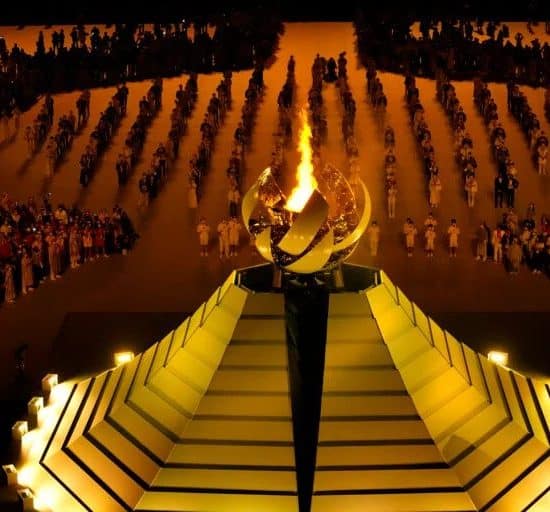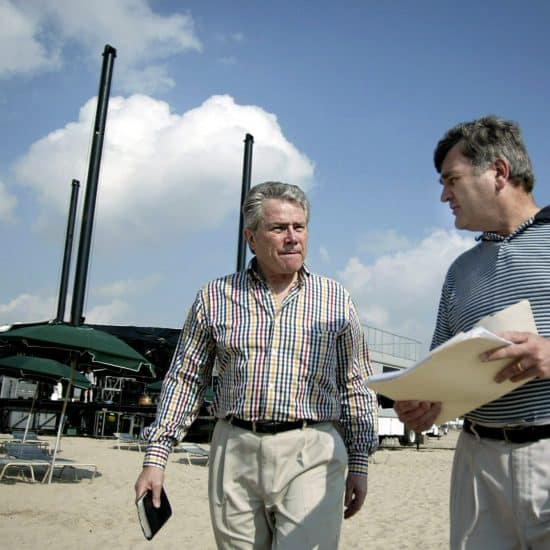SPRINGFIELD, Mo. — Faith remains intact when believers focus on God rather than on circumstance, speakers emphasized at this year’s Missouri Baptist Convention evangelism conference Feb. 5-6.
The annual event, held this year at Ridgecrest Baptist Church in Springfield, centered on the story in Daniel 3 of God’s saving Shadrach, Meshach and Abednego from the fiery furnace.

Church Planting Catalyst Brad Brisco visits with an MBC Evangelism Conference attendee. (Vicki Brown photo)
|
The “great danger” is to think the story is about the faith of the three men, instead of the story of “the sovereignty of one,” Midwestern Baptist Theological Seminary President Jason Allen said.
King Nebuchadnezzar had set up an idol, and the people had the choice to worship it or die. The three men refused to bow down to the king’s idol.
“We are worshippers at heart,” Allen said.
People often “bow unknowingly” to idols the world has built, including secularism, social liberalism and erotic liberty. Believers’ faith must be “so strong that we will go into the fire,” he said.
Some Christians often portray God as a “candy-cane God” or a “sugar God” and believe that he will keep them from going into the fire. When faced with a problem that God doesn’t stop, they turn away from him.
Believers must remember that God didn’t prevent the three from going into the fire, but protected them in it, Allen said.
Brad Brisco, a church planting catalyst for a network of Baptist congregations in metro Kansas City, reminded listeners that they must return to the theological foundations of missions and practice them in their ministries.
They must remember the church is to participate in God’s incarnational mission and are to implement missional practices to reach others.
The rise of suburban sprawl, an automobile culture and home entertainment has contributed to isolation and the decline of “third places” or places of common ground where people hang out with one another.
Brisco emphasized that believers must practice biblical hospitality, opening themselves to developing relationships with others. They must identify and enter the “third places” in their neighborhoods and be intentional listeners in those places.
They also should create “third places” in their communities. Brisco noted that some church planters are opening coffee shops to attract people.
Believers should support and defend “third places” community members create, such as parks, in their neighborhoods.
Former Missouri Baptist pastor Micah Fries pointed out that sometimes a church might look “successful” from the outside, but that internally it has a problem.
Now vice president for LifeWay Research, Fries pointed to the church at Ephesis in Revelation 2.
The church was doing a great deal. Members were “committed,” “doctrinally faithful,” “theologically sound” and “selfless,” Fries said, but they had abandoned their first love.
“It’s not a ‘doing’ problem…. There’s a ‘being’ problem,” he said. They were doing so much that they forgot they were to be in love with God.
The Ephesians had replaced trust in God’s salvation with trust in their abilities and activities. Today, church members can fall into the same patterns. Fries called on listeners to repent — to deny their human rights and follow Jesus.
Other speakers at the two-day event included D.A. Horton, national coordinator for the Southern Baptist Convention North American Mission Board’s Urban Student Missions, and Gary L. Frost, the NAMB’s Midwest region vice president. Gregory Frizzell, prayer and spiritual awakening specialist for the Baptist General Convention of Oklahoma, led a prayer response after each speaker.
Charles Billingsley, worship leader at Thomas Road Baptist Church in Lynchburg, Va., led worship during the conference.
The event also included several training breakouts.






